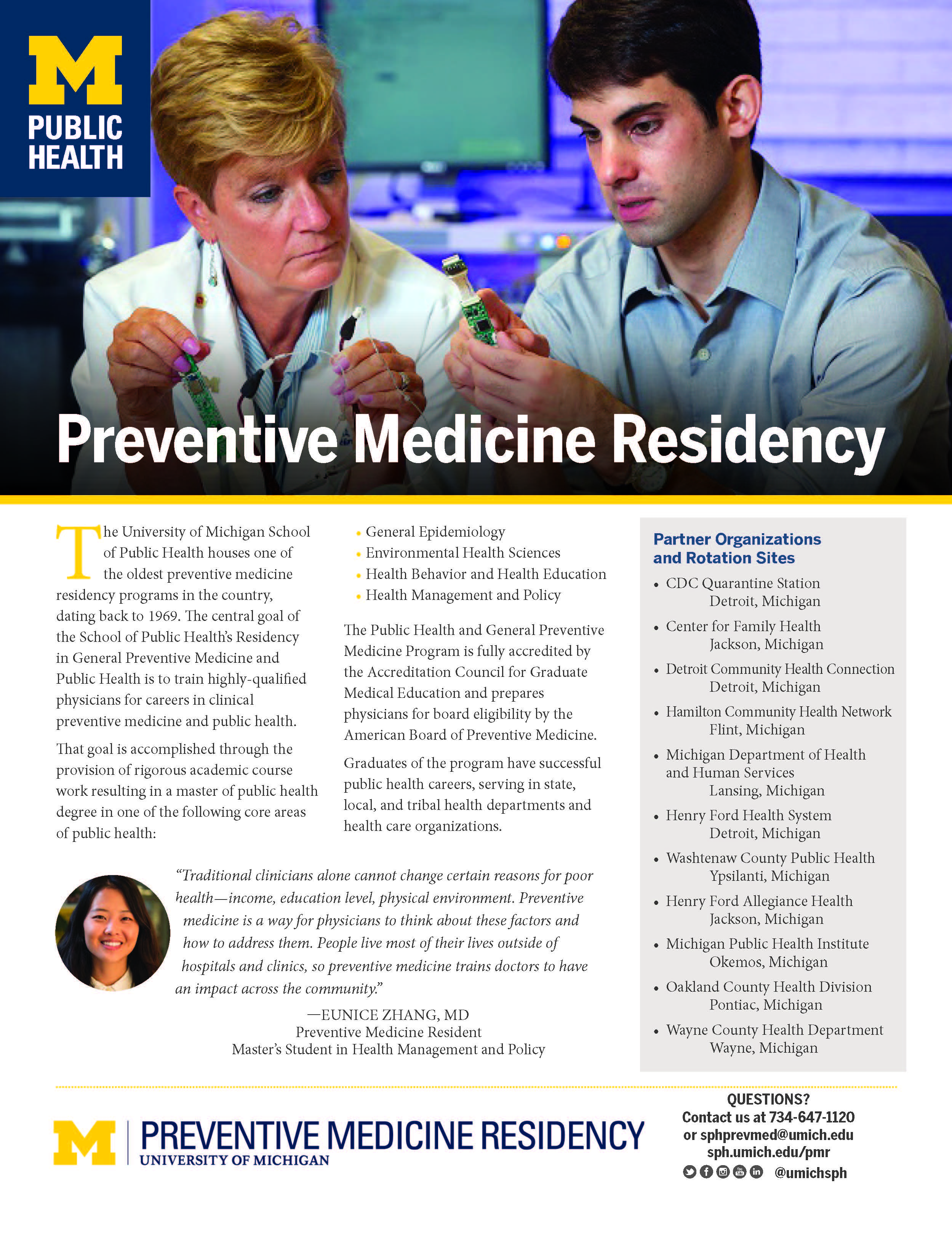Overview
Program Overview
The University of Michigan School of Public Health Preventive Medicine Residency offers training in two tracks (both tracks are 2-years in duration): MPH degree or Practicum-only (for applicants that already have a MPH degree).
Successful completion of a residency in Public Health and General Preventive Medicine requires a minimum of three years of training:
- One year of accredited postgraduate clinical training (PGY-1) in a primary care specialty within the United States or Canada (this Residency does not offer the PGY-1 training). Some applicants may have completed a full clinical residency.
- Two years of specialty training in the Preventive Medicine Residency at the University of Michigan School of Public Health, which includes broad-based education followed by focused preventive medicine education.
The Residency's mission is accomplished through the provision of rigorous academic
course work resulting in a Master of Public Health degree in one of the following
departments:
- General Epidemiology
- Environmental Health Sciences
- Health Behavior & Health Equity
- Health Management and Policy
Broad practicum experiences are offered with concentrations in applied epidemiology, public health practice, and clinical preventive medicine, which are typically provided in areas of high unmet health care needs.
Approximately three new residents are admitted to the Residency each year, which begins on July 1. Residents in the first year of the program (PM-1) are engaged in continuity clinics and attend academic courses and preventive medicine seminars. Residents in the second year (PM-2) complete 4–5 practicum rotations and finalize coursework to earn a Master of Public Health degree from the University of Michigan.
Positions are awarded on a competitive basis. Residents are committed full-time to the program and must reside within commuting distance of Ann Arbor. The Residency provides medical professional liability insurance, an annual stipend for all residents, generous vacation and sick time, and full MPH tuition.